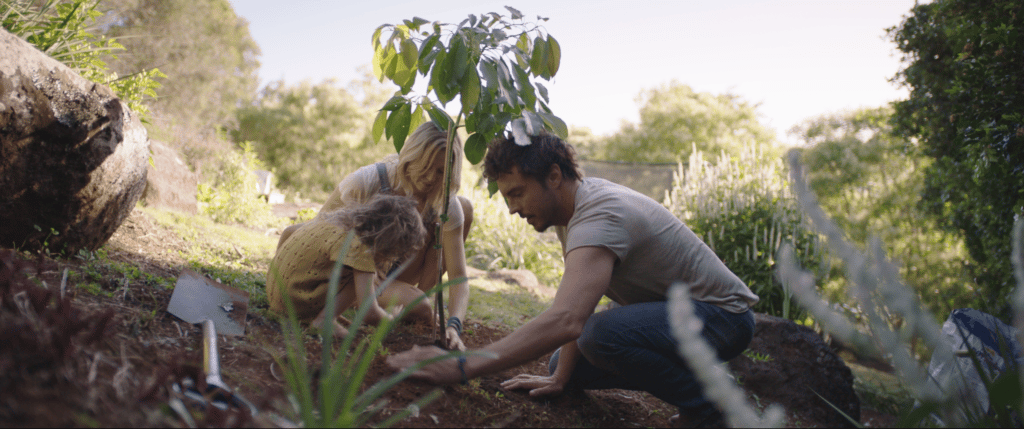Read also:
How to Watch FX Live Without CableHow To Watch AMC Without CableHow to Watch ABC Without CableHow to Watch Paramount Network Without CableDamon Gameau’s look at what the planet will be like when his daughter reaches adulthood is a swift, engaging doc despite its cornier moments.
Damon Gameau, the central subject of the documentary 2040, is concerned about his child’s future. Granted, environmental problems like climate change that plague Earth would make any parent worried. Will there even be a planet for future generations to inhabit? But Gameau isn’t content to fret about ecological turmoil. Throughout 2040, he looks around the world for solutions to environmental woes. He hopes these solutions could make Earth a better place for his daughter, Velvet, to live in by the year 2040.
This exploration breaks down into five sections. Each covers a different industry, how it impacts the environment, and how we can improve them in the next two decades. These five sections consist of electricity, automobiles, agriculture, water, and general resources. That material may make 2040 sound like a stiff production, but as a writer/director, Gameau is determined to ensure it isn’t just a lecture.
Part of how he approaches this ambition is by wrapping the movie in an upbeat tone. At the start, Gameau acknowledges how the environmental advocacy conversation has a doom-and-gloom attitude. To help inject a more positive attitude into 2040, part of Gameau’s quest will be to find solutions to environmental problems that already exist. He won’t be placing his hopes for tomorrow into the theoretical. Instead, he wants to highlight remedies that are concrete and need deployment on a larger scale.

This is not a revolutionary approach for an environmental documentary. Yet, Gameau’s commitment to this hopeful aesthetic does keep 2040 engaging, and Gameau balances out his idealism with doses of complex reality. This includes a brief scene where Gameau comments on how he feels like a hypocrite. How can he film a documentary like this while making use of planes that emit so many greenhouse gases? It’s a moment of open honesty that presents how difficult it is to combat omnipresent ecological issues.
Meanwhile, visual aids in the production prove predominantly handy and easy-to-understand. These include a bird’s-eye-view demonstration of a microgrid electricity system and a “donut” to represent inequal distribution of resources. Gameau’s verbal explanations for environmental phenomena are similarly digestible. There’s a casual sensibility to Gameau’s vocals; it never feels like he’s talking down to the viewer, even when covering heady topics. That makes it easy to become interested in the righteous causes he seeks to champion.
Gameau’s commitment to this hopeful aesthetic does keep 2040 engaging, and Gameau balances out his idealism with doses of complex reality.
The title year serves as a backdrop for many sequences showing the positive long-term effects of confronting climate change. Despite stating in the documentary’s opening that he wants to reference only real-world solutions, Gameau’s rendering of the year 2040 takes a fanciful approach to imagining the world. It’s an odd choice given that within the modern innovations (like turning seaweed into salad), Gameau discovers are so much more involved than depictions of Jetsons-like trains roaming the streets of the future.
These recurring segments set in 2040 also tend to make use of distractingly poor production design & visual effects. These include make-up work used to create an older version of Gameau, and it’s hard to focus on anything he’s saying when he looks more like Guy Pearce in Prometheus. Additionally, these scenes are where 2040 steps up on delivering superfluous corny jokes. They’re the kind of levity a Pastor might deliver in a dry sermon. (The only laugh to be had in 2040’s future segments is that, if one background extra is any indication, future fashion will include wearing one’s bra over their shirt.)
Needless to say, the future segments are clumsily executed even as they reflect the film’s enduring optimism. Gameau’s long-term vision for such change incorporates positive ripple effects for so many communities. These include unemployed oil workers and the entire population of women. It’s all a bit too pie-in-the-sky, but it’s better to shoot for the stars than not shoot at all when it comes to changing the world.
2040 is available in virtual theaters starting June 5th. Find locations here.